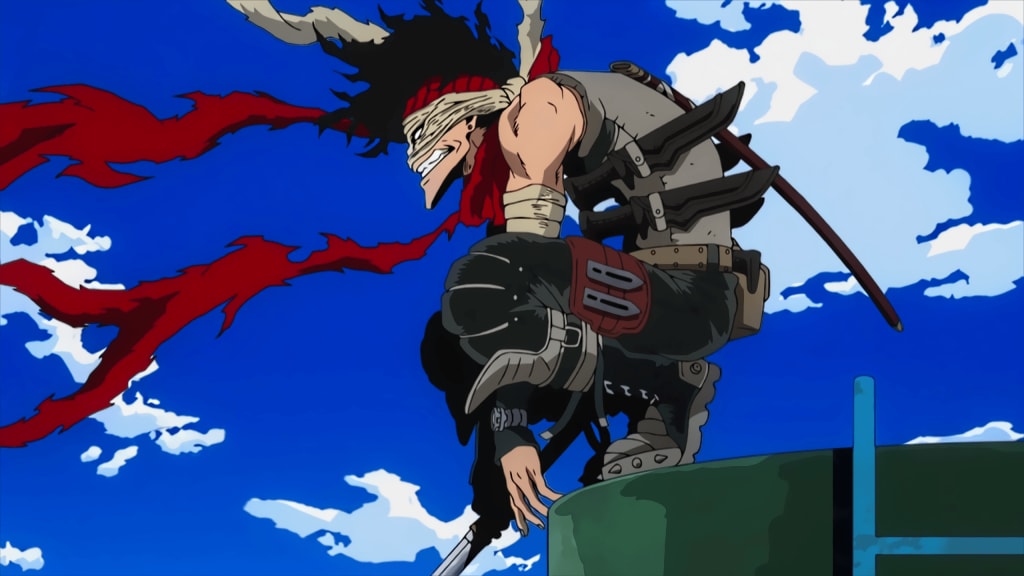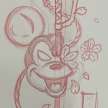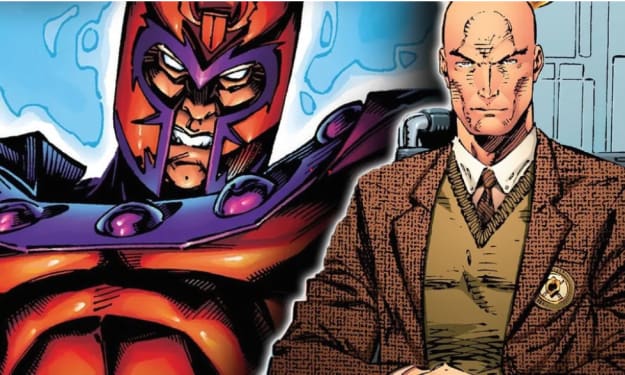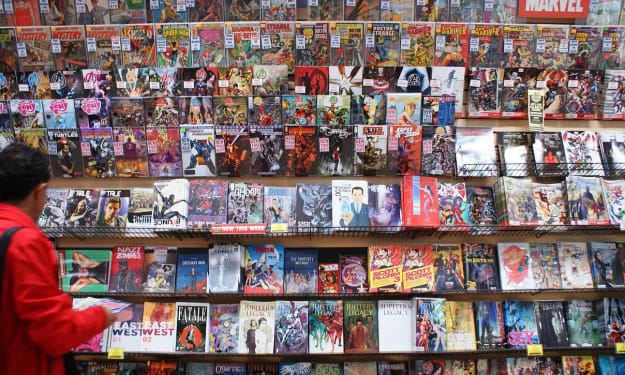Stain's Principle
Deconstructing the Ideology of Heroism and the Paradox of Respect

In the rich tapestry of hero narratives within the realm of manga and anime, few characters have left as profound an impact as Stain, the enigmatic antagonist from Kohei Horikoshi's "My Hero Academia." Stain's principle, a belief system centered around the purification of heroism through the elimination of "fake" heroes, is a moral and philosophical cornerstone that challenges the very foundation of the hero society portrayed in the series. Despite his radical methods, Stain's unwavering respect for All Might, the symbol of peace, adds a layer of complexity to his character. This essay endeavors to dissect Stain's principle, exploring its ideological underpinnings, its implications within the world of "My Hero Academia," and the paradoxical nature of Stain's respect for All Might.
Stain, also known as Chizome Akaguro, emerges as a formidable antagonist in "My Hero Academia," driven by a singular belief: the perversion of heroism by fame-seeking individuals has corrupted society. His principle is rooted in a traumatic childhood experience, where he witnessed heroes prioritize their own personal glory over the safety and well-being of civilians. This disillusionment with the hero society catalyzed Stain's transformation into a vigilante zealot, dedicated to purging the world of what he perceives as false heroes. Stain's principle revolves around three core tenets: the belief that true heroes must act selflessly to protect others, the rejection of heroism motivated by fame or monetary gain, and the conviction that only those who embody pure selflessness and righteousness are worthy of the title of hero. To Stain, heroes are not defined by their Quirks or flashy costumes but by their actions and motivations. As Stain's character arc unfolds throughout the series, his principle evolves from a personal vendetta against fake heroes to a larger ideological crusade. His encounters with various characters, including Izuku Midoriya and Tenya Iida, serve as catalysts for introspection and refinement of his beliefs. Despite his antagonistic role, Stain's principle sparks discourse within the hero society, forcing characters and viewers alike to confront uncomfortable truths about the nature of heroism.
At its core, Stain's principle serves as a deconstruction of traditional hero narratives, challenging the idealized image of heroes as infallible paragons of virtue. By highlighting the flaws and contradictions inherent within the hero society of "My Hero Academia," Stain exposes the darker underbelly of heroism – the commodification of bravery, the pursuit of celebrity status, and the erosion of moral integrity in the face of fame. Stain's critique extends beyond individual heroes to the broader hero industry, which he views as a profit-driven machine that prioritizes marketability over genuine heroism. The prevalence of hero agencies, commercial endorsements, and celebrity culture within the series reflects real-world parallels to industries where altruism is commodified and moral integrity compromised for financial gain. Moreover, Stain's principle challenges the notion of heroism as an inherently noble pursuit, arguing that true heroism necessitates sacrifice and selflessness. His disdain for heroes who prioritize personal glory over the safety of civilians underscores the moral imperative of heroism – to protect and serve others without expectation of reward or recognition.
The emergence of Stain and his principle sends shockwaves throughout the hero society depicted in "My Hero Academia," forcing characters to grapple with questions of morality, ethics, and the true nature of heroism. The hero ranking system, which categorizes heroes based on popularity and achievements, becomes a focal point of scrutiny as Stain's ideology gains traction. Characters like Endeavor, the second-ranked hero, and Ingenium, Tenya Iida's older brother, face public scrutiny and introspection as their motivations and actions are called into question by Stain's principle. The moral ambiguity surrounding these characters serves as a testament to the complexity of heroism within the series, challenging viewers to reevaluate their preconceived notions of heroism and virtue. Furthermore, Stain's influence extends beyond individual heroes to the broader societal landscape of "My Hero Academia." His actions inspire a new generation of vigilantes and anti-hero factions, each interpreting his principle in their own way. The proliferation of Stain's ideology highlights the deep-seated discontent within the hero society and foreshadows the impending paradigm shift that will redefine the hero narrative.
One of the most intriguing aspects of Stain's character is his paradoxical reverence for All Might, the symbol of peace and embodiment of traditional heroism within the series. Despite his condemnation of the hero society and his crusade against fake heroes, Stain holds All Might in high esteem, viewing him as the epitome of true heroism. Stain's respect for All Might stems from the latter's unwavering dedication to selflessness and justice, qualities that align with Stain's own criteria for true heroism. All Might's willingness to sacrifice himself for the greater good, coupled with his humility and integrity, earns him Stain's admiration, even as Stain condemns the broader hero society. This paradox highlights the complexity of Stain's character and adds depth to his principle. While Stain's actions may seem extreme and uncompromising, his respect for All Might humanizes him, suggesting that his crusade is not born out of malice but rather a genuine desire to uphold the ideals of heroism that All Might represents.
Stain's principle and its implications reverberate throughout the narrative of "My Hero Academia," leaving an indelible mark on both characters and viewers alike. His ideological crusade challenges the hero society to confront its shortcomings and strive for greater accountability and integrity. Moreover, Stain's complex character serves as a catalyst for introspection, forcing viewers to reconsider their own beliefs and values surrounding heroism. The legacy of Stain extends beyond the confines of the series, sparking discussions and debates within the fandom and broader media landscape. His principle serves as a poignant commentary on the nature of heroism, morality, and societal expectations, resonating with audiences who grapple with similar questions in their own lives.
Stain's principle stands as a testament to the depth and complexity of "My Hero Academia" as a narrative. Through his radical ideology and paradoxical reverence for All Might, Stain challenges the idealized image of heroism, forcing characters and viewers to confront uncomfortable truths about the nature of virtue and sacrifice. As the series continues to unfold, Stain's legacy serves as a poignant reminder of the power of storytelling to provoke thought, inspire introspection, and spark meaningful discourse.
About the Creator
JRManglicmot
A Striving father and husband, trying to be the best I can be. I'm not perfect, but I try to be the one my family can look up to. I stumble and make mistakes from time to time, most often, but I try to learn from my mistakes.






Comments (1)
Hey there, just wanna let you know that this needs to have the disclaimer added to the beginning or ending, stating that it was created with the help of AI 😊